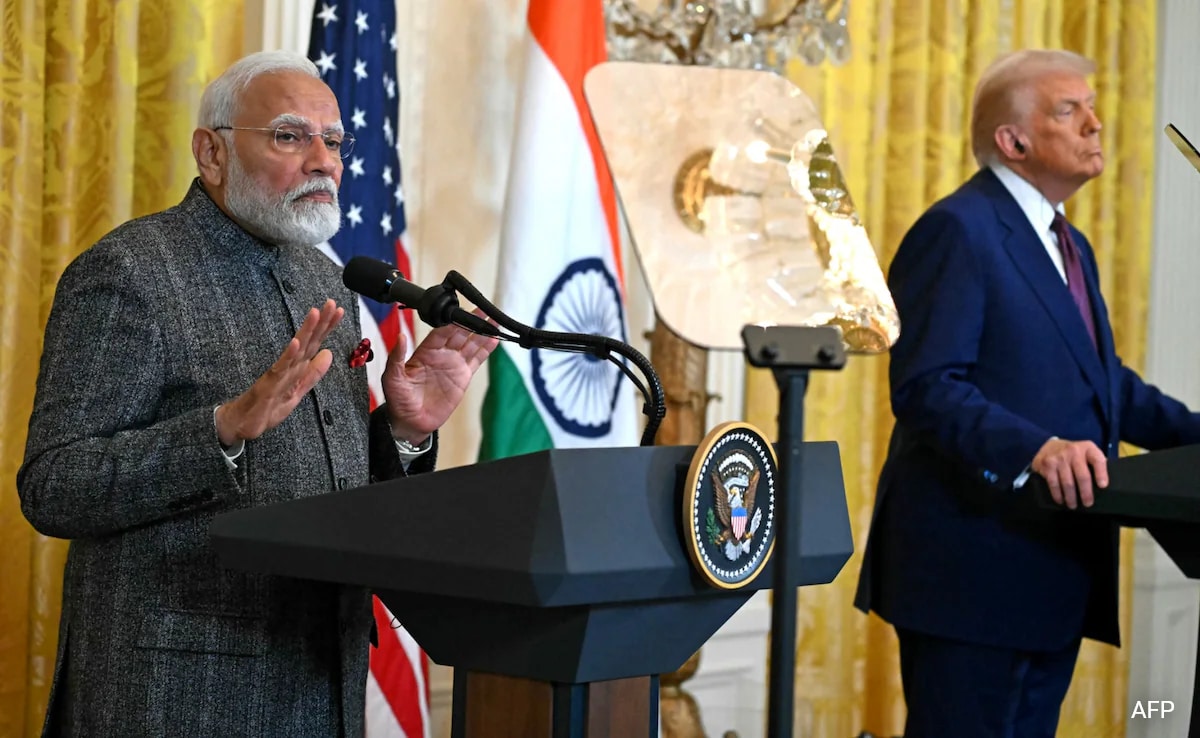

Renowned economist Jeffrey Sachs has strongly criticized US President Donald Trump's recent imposition of tariffs on India, describing the move as "stupid" and asserting that the US acts as though "they can boss every other part of the world around". Sachs' comments come in the wake of the US levying a total of 50% tariffs on Indian goods, a decision that has intensified trade tensions between the two nations.
Sachs, a professor at Columbia University, has characterized Trump's approach as "clumsy" and "self-destructive" for US foreign policy interests. He argues that the tariffs are not only detrimental to the US economy but also violate international law and represent a breakdown of the American political system. He highlighted that there is a lawsuit in the US Appellate Court contending that Trump has violated the law by imposing these tariffs, raising the possibility that Trump's entire tariff regime could be deemed unconstitutional.
The tariffs, which include an initial 25% duty imposed in July and a subsequent 25% increase, are ostensibly linked to India's continued imports of Russian oil. However, Sachs suggests that Trump's actions stem from a broader desire to exert dominance over other nations, particularly the BRICS countries (Brazil, Russia, India, China, and South Africa). He noted that Trump dislikes the BRICS nations because "they stand up and say to the US, you don't run the world".
Sachs advises India to maintain an independent foreign policy and strengthen ties with countries like China, Russia, and Brazil, who he considers to be India's "real partners". He cautioned against India placing too much trust in the United States or believing that it can replace China in global value chains, as Trump is a protectionist and an unreliable trade counterpart. He also stated US politicians do not care about India.
The economist's remarks reflect growing concerns about the state of US-India relations under the Trump administration. While bilateral trade between the two countries reached an estimated $212.3 billion in 2024, the recent tariff dispute has cast a shadow over the partnership. The US is pressing for greater market access in politically sensitive areas such as agriculture and dairy, which India has been reluctant to concede due to concerns about the impact on its farmers.
The imposition of tariffs has led to a deferment of the sixth round of negotiations for a proposed bilateral trade agreement, originally scheduled for late August. Analysts suggest that the tariffs could negatively impact India's GDP growth, potentially cutting 0.3 to 0.6 percentage points off the forecast. Some fear that the tariffs may drive India closer to Russia and China, potentially weakening US currency influence.
Despite the strains in the relationship, both countries recognize the strategic importance of maintaining ties. The US views India as a counterbalance to China, while India sees the US as a key partner in technology, defense, and energy cooperation. However, the recent friction has eroded expectations of a privileged relationship between the two nations, leading India to reaffirm its commitment to economic self-reliance and diversifying its export markets.
Jeffrey Sachs' critique underscores the challenges facing US-India relations in the current geopolitical landscape. His advice to India to diversify its partnerships and maintain an independent foreign policy reflects a growing sentiment that the US is no longer a reliable partner and that India should pursue its own interests on the global stage.